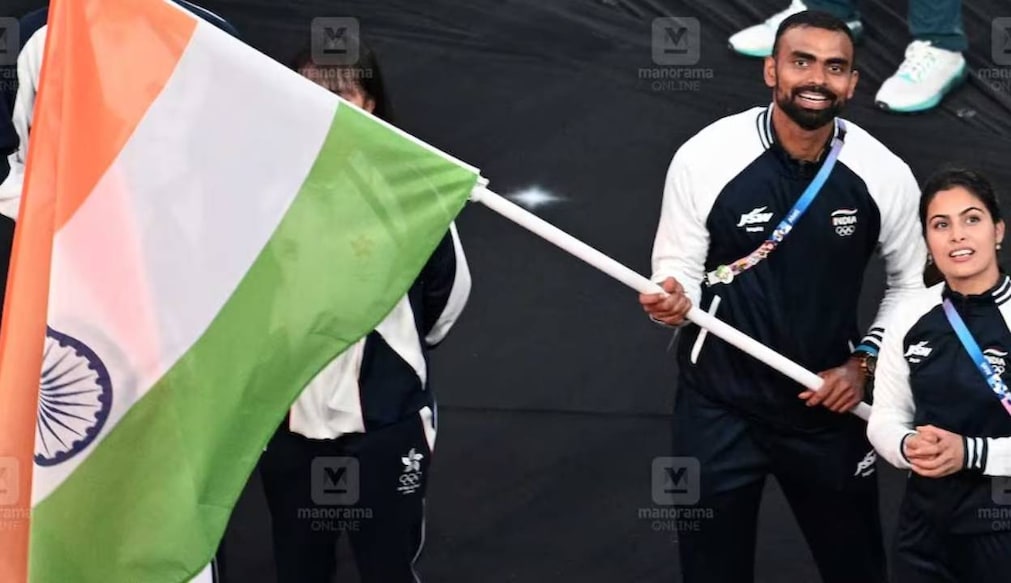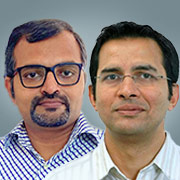Column | India’s path to a better Olympic medal tally

Mail This Article
The 2024 Olympics, one of the best-organised and most memorable of our time, wound down in Paris. India finished in 71st position among 203 nations, winning six medals, none of which were gold. Rewinding to the 1984 Los Angeles Olympics, PT Usha, now the president of the Indian Olympic Association, was a sensation, making headlines in national dailies for missing out on the 400-metre bronze medal by mere fractions of a second. Despite the huge disappointment, it was a moment of national pride for that generation because no other female athlete from the country had ever come this close to an Olympic medal.
Most Indians felt, however, that no athlete from the country could ever achieve anything greater, as a similar fate had befallen the legendary Milkha Singh at the 1960 Rome Olympics.

A brief history
Ever since Independence, India's Olympic medal record has generally been disappointing. Except for multiple medal-winning victories in hockey, the last of which was a gold medal at the 1980 Moscow Games, the country has not been a major Olympic power.
Winning an individual Olympic medal remained a distant goal for many decades after a single bronze in wrestling at the 1952 Helsinki Olympics. It took more than four decades for the next breakthrough to occur at the 1996 Atlanta Summer Games when Leander Paes won a bronze medal in men's singles tennis.
The moment when Paes stepped onto the medal podium, raising his hands to the gallery alongside the legendary tennis player Andre Agassi, who secured the gold, remains unforgettable. For the first time in 26 years, Indians saw the tricolour fluttering in an Olympic stadium after a medal ceremony.
However, since the turn of the new century, the Indian Olympic squad has never returned empty-handed. Starting with a bronze medal at the 2000 Sydney Olympics, the country added a silver in shooting in 2004 in Athens. At the 2008 Beijing Games, India took another step forward by winning an individual gold medal through shooter Abhinav Bindra, along with two bronze medals. The journey continued in subsequent Olympics, culminating in the first gold medal in track and field, won by Neeraj Chopra at the 2020 Tokyo Games.
For the older generation of Indians, who took pride in Usha's performance in 1984, the total tally of six medals, including two bronze won by Manu Bhaker at the Paris 2024, represents a significant leap. However, for today’s youth, who have grown up hearing about the country's remarkable economic growth and its anticipated rise to superpower status, India’s 71st position in the medal tally is viewed as highly unsatisfactory, if not shocking.
The disappointment stems from observing how other developing nations, particularly neighbouring China, have achieved dominance in the medal standings. In contrast, India has not demonstrated a steady, exponential rise in Olympic success that reflects its economic progress since the 2000s.
The hunt for gold
China, much like the former Soviet Union, views Olympic dominance as crucial for influencing the global economy and shaping the world order.
In the early 1990s, the Chinese government introduced a clear national policy aimed at dominating world sports. Their 'Catch Them Young' initiative, which recruits and trains talents from a very young age, is one of the largest sports training programs in the world.
Thousands of selectively chosen children are trained for specific sports with a high probability of winning, a model China adopted from the USSR during the Cold War period. In addition to elite national and regional sports training centres like Beijing Sports University, the Chinese government has been instrumental in establishing local Olympic schools to train children identified before the age of 10.
Many other countries adopt different approaches. For example, countries like Norway use a 'hands-off' strategy, encouraging children up to the age of 11 to try various sports without the pressure of rankings or classroom scores, allowing them to enjoy sports as a fun and engaging experience. Such a flexible system designed to foster a culture of sports has consistently produced results in both the Summer and Winter Olympics.
Another strong example of the benefits of an established national sports system is the performance of Eastern European countries and former Soviet republics. Despite their relatively less advanced economies, they have maintained a consistent Olympic track record, thanks to the well-established systems inherited from the Soviet era. For instance, Uzbekistan and Hungary secured the 13th and 14th positions in the 2024 Olympics medal tally, with eight and six gold medals, respectively. Even war-torn Ukraine earned 12 medals, including three gold, in Paris.

Need a comprehensive approach
Modern professional sports success is not solely the result of individual talent; it stems from a robust national sports system. This system encompasses a comprehensive approach to nurturing both physical abilities and mental sharpness, rather than simply allocating substantial funds to initiatives such as the Indian government’s Target Olympic Podium Scheme (TOPS).
The integration of advanced training methods, top-notch facilities, and expert coaching ensures that athletes receive the best possible preparation, not only for competition but also for maintaining their weight within the required limits. This was demonstrated by the loss of a medal due to the disqualification of Indian wrestler Vinesh Phogat for being 100 gm overweight.
Furthermore, the inclusion of mental conditioning and sports psychology helps athletes manage pressure and maintain focus, which is crucial for achieving peak performance in Olympic competitions.
Prakash Padukone, the legendary badminton player and coach, recently remarked that the Olympics are all about handling pressure. He emphasised the importance of focusing on mental conditioning, including practices such as meditation and yoga. Padukone suggested that bringing in foreign sports psychologists is crucial and stressed that it is high time for players to recognise the significance of sports psychology, especially in light of how Indian player Lakshya Sen faltered under pressure in the bronze medal play-off in Paris.
What India needs is a comprehensive framework that integrates rigorous sports training at the school level with a systematic approach at higher levels, addressing both the physical and mental aspects of athletic development. Such an integrated system provides a solid foundation for athletes to reach their full potential, ultimately leading to sustained success on the Olympic stage.
(Social anthropologist and novelist Thomas Sajan and US-trained neurologist Titto Idicula, based in Norway, write on politics, culture, economy, and medicine.)


